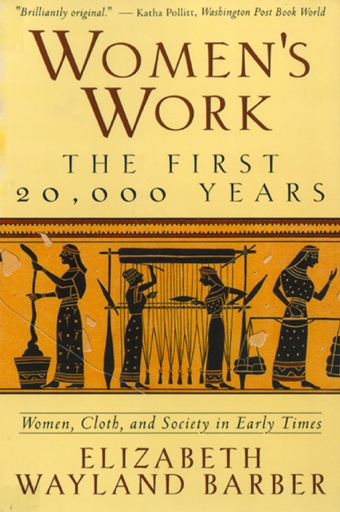A Fascinating Book on a Critical Topic
4 stars
While a bit too focused on European pre-history than I'd like, this is still an incredible view into the evolving role of women in society. This isn't just about work, especially because economic production before the invention of money is hard to disentangle from social functions. This book dives into the archaeological record to piece together the role of women in society and how technological changes shaped that role - moving from one of child rearing to incorporating other tasks that could be done in the home to eventually full fledged production of complex goods.
I particularly liked how this book draws from various sources, and the author even engages in different types of weaving herself to understand what would have been done in the past. This contrasts sharply with economists of today, who often eschew qualitative and experiential understanding of companies and work and instead focus only on numbers. …
While a bit too focused on European pre-history than I'd like, this is still an incredible view into the evolving role of women in society. This isn't just about work, especially because economic production before the invention of money is hard to disentangle from social functions. This book dives into the archaeological record to piece together the role of women in society and how technological changes shaped that role - moving from one of child rearing to incorporating other tasks that could be done in the home to eventually full fledged production of complex goods.
I particularly liked how this book draws from various sources, and the author even engages in different types of weaving herself to understand what would have been done in the past. This contrasts sharply with economists of today, who often eschew qualitative and experiential understanding of companies and work and instead focus only on numbers. Overall this is a quick, engaging read.

